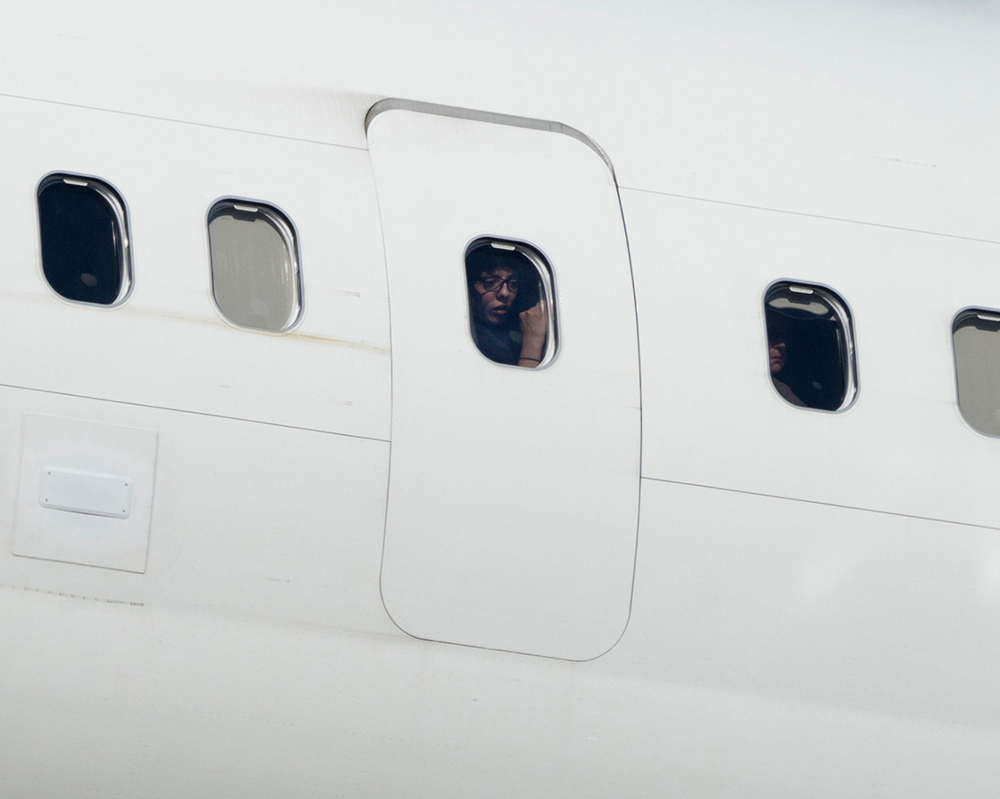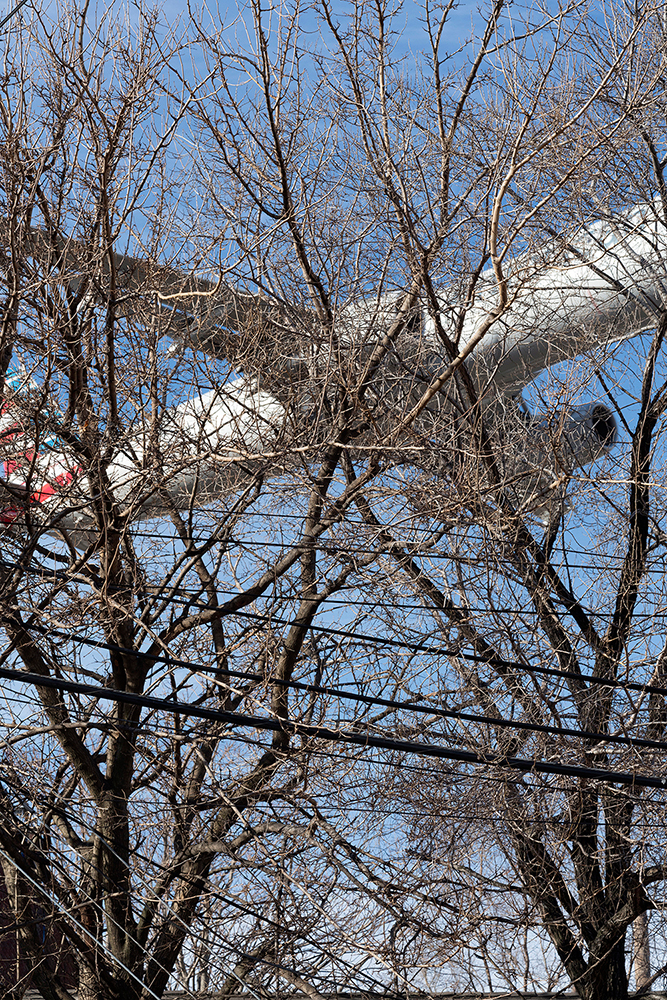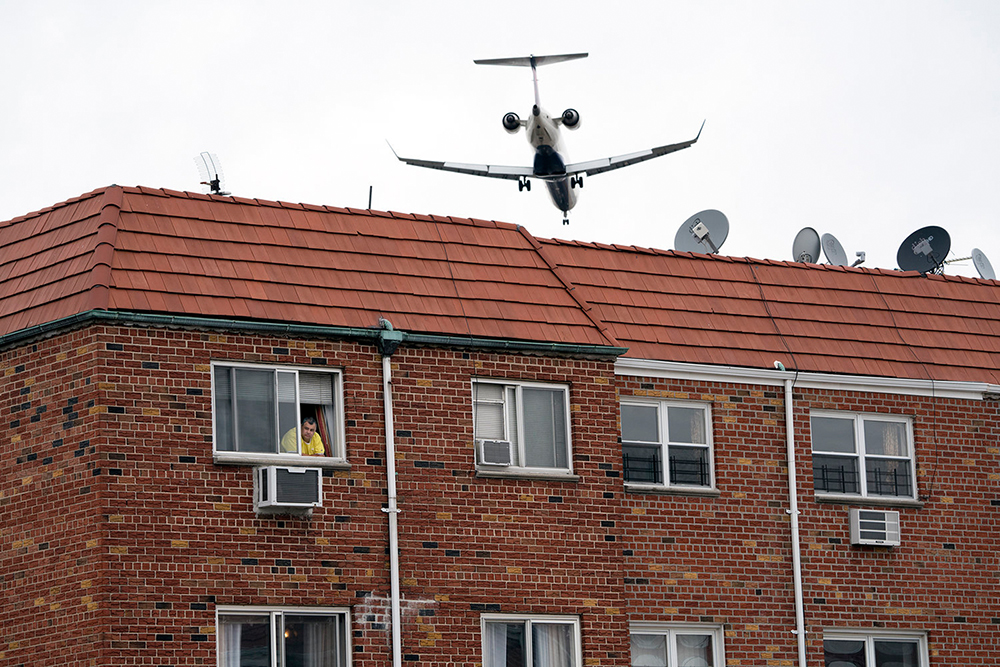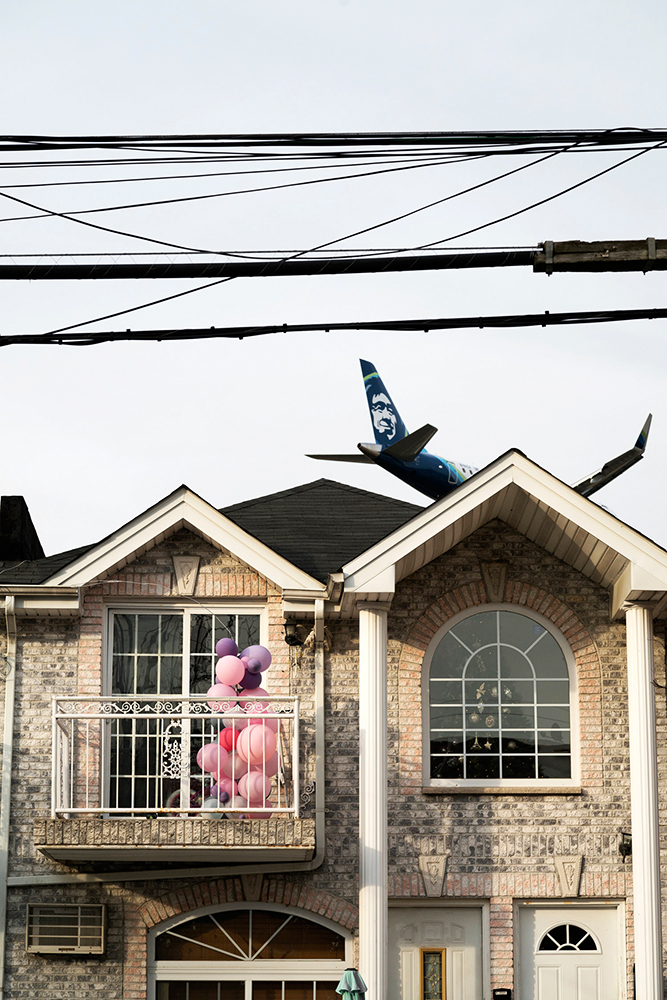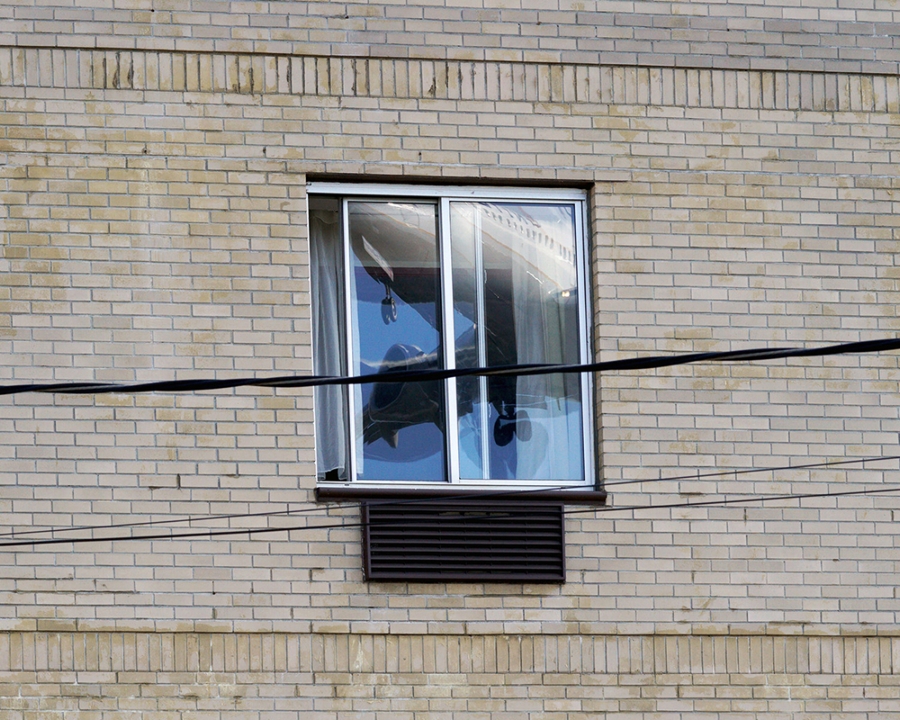Name
David Rothenberg
Title ︎︎︎ Landing Lights Park (ROMAN NVMERALS, 2018)
In his new photography book Landing Lights Park (ROMAN NVMERALS, 2018), David Rothenberg focuses on the neighborhood that lies beneath the whining roar and shadows of inbound jetliners landing at New York’s LaGuardia Airport in Queens. Rothenberg’s photographs explore this extraordinary intrusion within a landscape of the ordinary. Landing Lights Park offers a sequence of disorienting photographic collisions. Neighborhood details and intruding airplanes are interspersed with portraits of passengers in midair as they gaze out their windows moments before landing, taken from the ground with a telephoto lens. Includes short essays by Gideon Jacobs.
An excerpt from Landing Lights Park: "It turns out that, just as there is a magic hour, there is a magic altitude. At some specific but difficult to identify distance from the ground, those who have won a window seat on their flight can be captured making the sort of faces people used to make in the days before there were people everywhere and people with cameras everywhere, before public self and private self merged into a monolithic selfhood as performative as it is authentic. These faces and their rare expressions aren’t simply a result of the fact that the window seat winners are not aware they are being photographed—candidness is as achievable in ground-to-ground pictures as it is in ground-to-air pictures. No, the magic altitude is magical because passengers looking out the window of an airplane, soaring through the sky in a metal pod at this particular height, have the luxury of feeling the warm safety of separateness without feeling the dull ache of alienation. They are, at this moment, not so high that the world is rendered abstract, not so low that they are a part of the thing they are observing. They are in a perspectival limbo, the sort that can, in an era that calls for defense, render a person undefended.
An excerpt from Landing Lights Park: "It turns out that, just as there is a magic hour, there is a magic altitude. At some specific but difficult to identify distance from the ground, those who have won a window seat on their flight can be captured making the sort of faces people used to make in the days before there were people everywhere and people with cameras everywhere, before public self and private self merged into a monolithic selfhood as performative as it is authentic. These faces and their rare expressions aren’t simply a result of the fact that the window seat winners are not aware they are being photographed—candidness is as achievable in ground-to-ground pictures as it is in ground-to-air pictures. No, the magic altitude is magical because passengers looking out the window of an airplane, soaring through the sky in a metal pod at this particular height, have the luxury of feeling the warm safety of separateness without feeling the dull ache of alienation. They are, at this moment, not so high that the world is rendered abstract, not so low that they are a part of the thing they are observing. They are in a perspectival limbo, the sort that can, in an era that calls for defense, render a person undefended.
Click ︎
